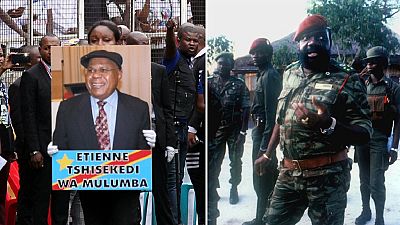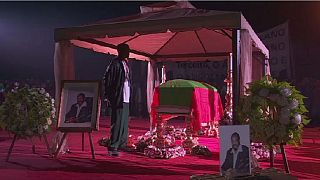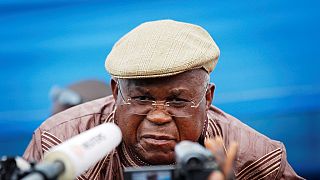Democratic Republic Of Congo
The southern Africa region held two burials on Saturday June 1, 2019 for two main opposition members of two neighbouring countries – the Democratic Republic of Congo, DRC, and Angola.
In the case of the DRC, the burial had to do with its biggest opposition figure in the last three decades, Etienne Tshisekedi whose arrival back in the country was occasioned by the rise to the presidency of his son, Felix.
Over in Angola, veteran opposition member Jonas Savimbi was finally given a burial in his home village as per his wishes, a move that analysts say gives the family closure since he was killed by state actors in 2002.
The case of DRC political icon, Etienne Tshisekedi
Etienne Tshisekedi wa Mulumba, a national icon largely and one of the most important advocates of democracy in the DRC died in a hospital in Brussels in early 2017 after a long battle with pulmonary embolism. He was 84 at the time of his death.
The then Joseph Kabila government failed to facilitate a return of the remains of the late Prime Minister turned opponent. He was returned late last week to Kinshasa following which a national funeral and private burial was held.
Tshisekedi, father of current president Felix, founded the main opposition Union for Democracy and Social Progress, UPDS, in 1984 after quitting as Prime Minister under the era of the late Mobutu Sese Seko.
He however did not remain in the position after clashing with the autocratic leader, who was eventually forced out in 1997. Tshisekedi became the main opponent of former president Laurent Kabila, who took power in 1997, and his son, President Joseph Kabila, who has ruled the country till 2019.
#RDC #ObsèquesETshisekedi Le Premier ministre honoraire Etienne Tshisekedi wa Mulumba repose, enfin, en paix dans sa dernière demeure. pic.twitter.com/VhzkIQrEf7
— Présidence RDC ?? (@Presidence_RDC) June 1, 2019
The case of Angola’s black rooster Jonas Savimbi
Angola on Saturday finally buried rebel leader Jonas Savimbi, in his home village at a public funeral, an important sign for national reconciliation seventeen years after the end of a bloody civil war.
Hundreds of people accompanied his remains to the village of Lopitanga in the centre of the country, where he was buried.
“For 17 years, we waited” for this funeral, said Isaias Samakuva, a former commander of the rebellion waged by the National Union for the Total Independence of Angola (UNITA), which has since transformed into a political party.
Jonas Savimbi, known as the “black rooster”, was killed on 22 February 2002 during a clash with the army near Luena, in the centre of the country. He was 67 years old.
The next day, soldiers buried him hurriedly in the city, after the national television broadcast images of his bullet-ridden body.
Less than two months later, a ceasefire ended 27 years of a conflict emblematic of the Cold War. The United States had long supported UNITA against the ruling Popular Movement for the Liberation of Angola (MPLA).
Savimbi’s reburial is the result long running negotiations with the Angolan authorities. His family and party officials have been courting Luanda to give the green light for a proper exhumation and burial in Lopitanga, in accordance with Jonas Savimbi’s wishes.
“He had always said he wanted to go home,” where his father is buried, explained one of his thirty children, Cheya Savimbi. These funerals are “an important sign for national reconciliation,” said one of his brothers, Raphael.
.embed-container { position: relative; padding-bottom: 56.25%; height: 0; overflow: hidden; max-width: 100%; } .embed-container iframe, .embed-container object, .embed-container embed { position: absolute; top: 0; left: 0; width: 100%; height: 100%; }














01:01
Trial of DRC's former Justice Minister Constant Mutamba postponed for two weeks
Go to video
Families grapple with life in the wake of the Israel-Iran Conflict
11:16
Angola hosts U.S.-Africa summit amid calls to revive trade ties {Business Africa}
01:39
Family of Kenyan man shot at close range by police demands accountability
01:10
Kenya's deputy police chief steps aside amid probe into blogger's death
00:08
Vatican beatifies Congolese customs worker killed in 2007 for refusing bribe